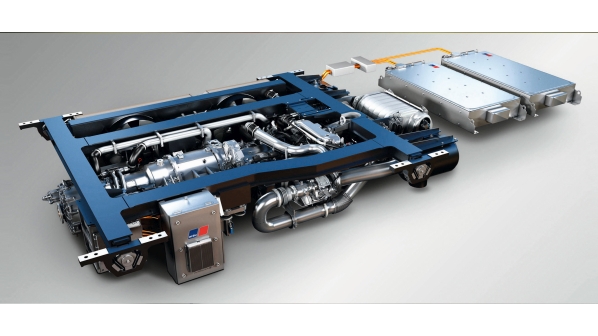The orders follow the signing of a memorandum of understanding at InnoTrans in September 2018. IE has ordered nine powerpacks, with Porterbrook initially ordering four to be installed on Class 168 and Class 170 DMUs. The Hybrid PowerPacks are to be delivered between May 2020 and the end of 2021.
Rolls-Royce says both customers are evaluating the possible conversion of significant parts of their fleets to hybrid once trials of the technology are completed, with IE planning to convert its entire Class 22000 fleet using up to 234 MTU Hybrid PowerPacks.
The hybrid powerpack combines an MTU diesel engine, built to EU Stage V emissions standards, with an electric unit that can function both as a motor and as a generator, as well as an MTU EnergyPack battery system that stores energy recovered during braking.
The powerpack enables trains to operate with zero local emissions under battery power. In station areas, traction noise is reduced by around 75%, power consumption and CO2 emissions are cut by up to 25%, and operating costs are also significantly lower. Wear on brake pads and discs is also reduced due to brake energy recuperation.
As a result of the additional power provided by the electric motor, the packs can also improve journey times through better acceleration.
“We are proud to see the MTU Hybrid-PowerPack, which we’ve been pioneering for years, now establishing itself in the market as a leading-edge traction solution,” says Mr Jürgen Blassmann, head of rail business at Rolls-Royce Power Systems. “These first orders are a milestone as we transform the company from an engine and powerpack manufacturer to a solution provider offering tomorrow’s sustainable traction systems.”
In June 2018, IE signed a contract with Rolls-Royce to rebuild three MTU PowerPacks on a Hyundai Rotem 22000 class DMU with new EcoWorld transmissions from ZF to improve efficiency and reduce noise emissions.

